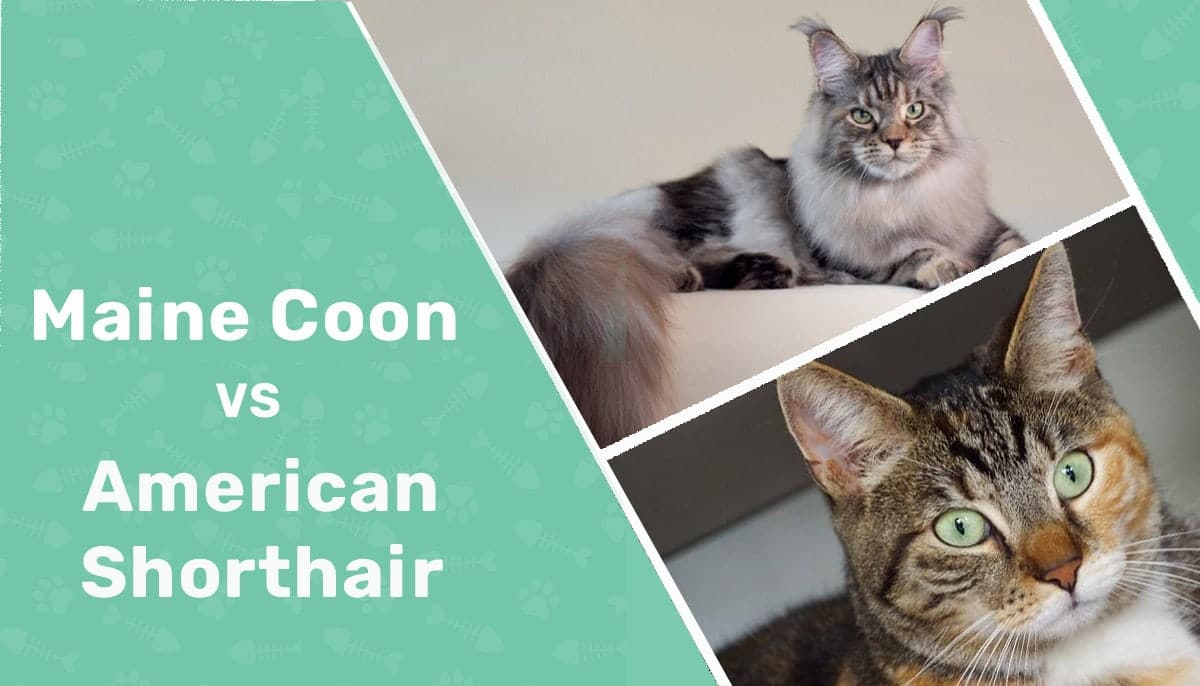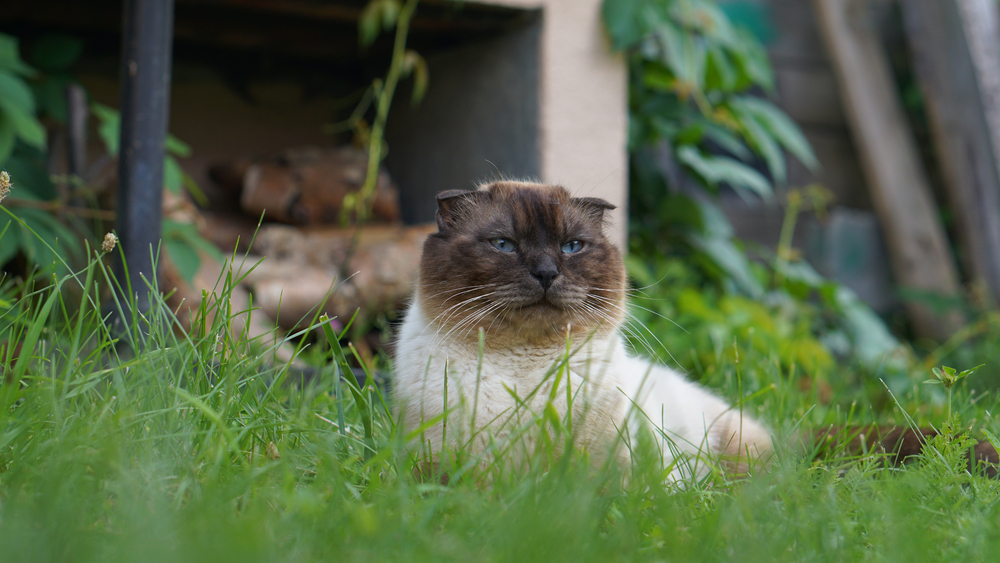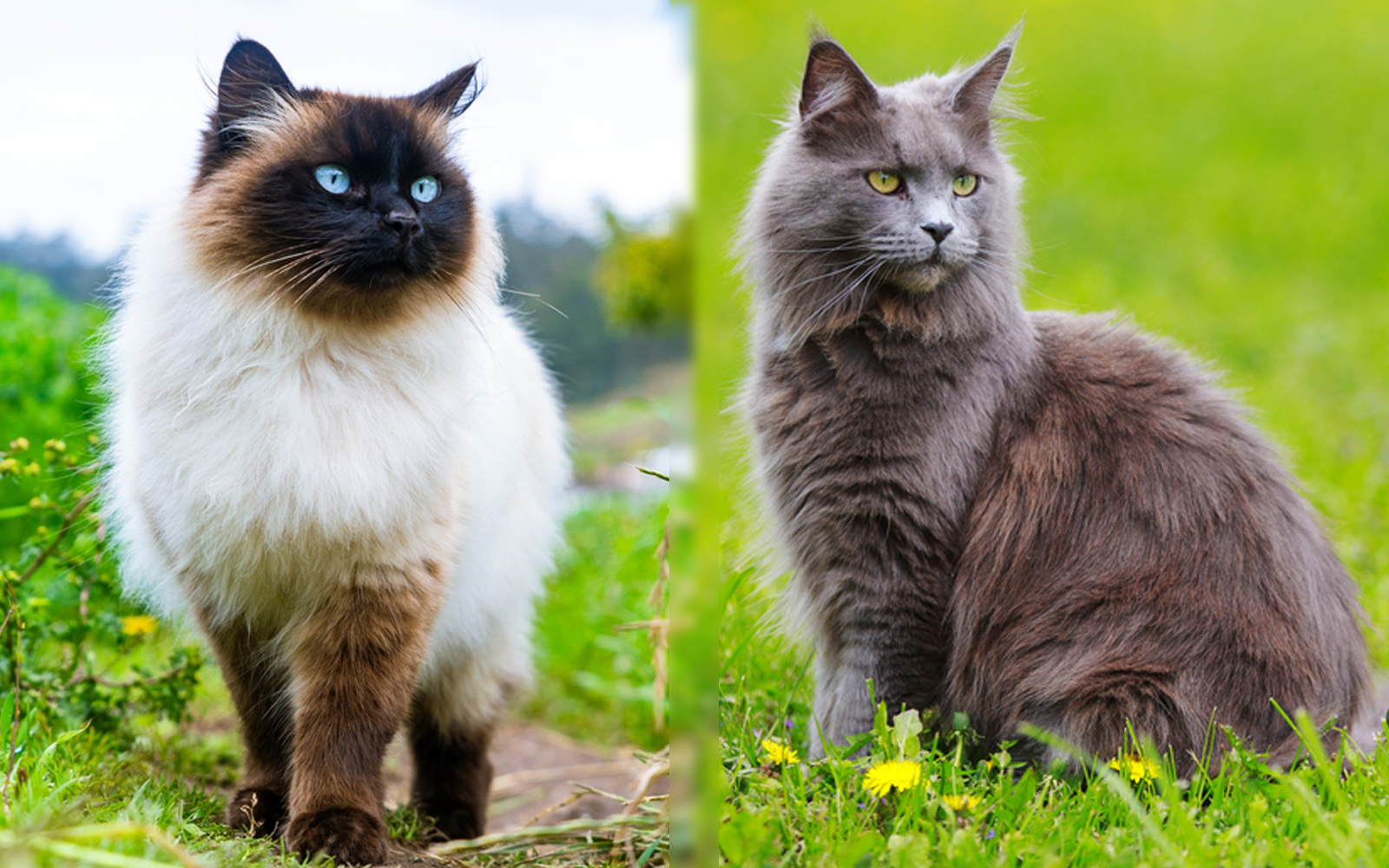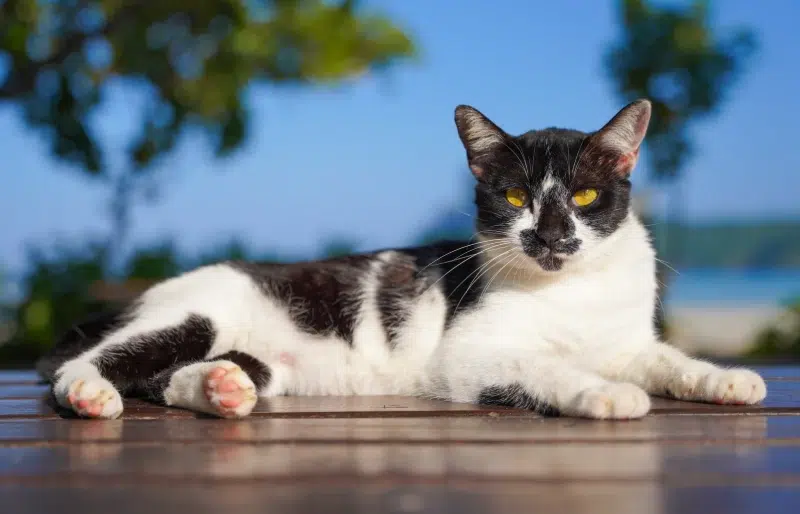Click to Skip Ahead
The Maine Coon is one of the most popular large cat breeds in the U.S. due to their teddy bear-like appearance and gentle temperament. The American Shorthair is a slightly less common cat breed, but they are beloved by those who keep them. Both breeds are excellent cats that are overall considered to be healthy and have trainable, friendly temperaments.
Choosing between the two can be difficult due to the large number of positive attributes that each exhibits. One breed does require more exercise than the other, and one has much higher grooming needs. Overall, though, both cats are relatively low maintenance and will appreciate any time you spend with them.
To help you decide between the Maine Coon and American Shorthair, you should understand their differences.
Visual Differences
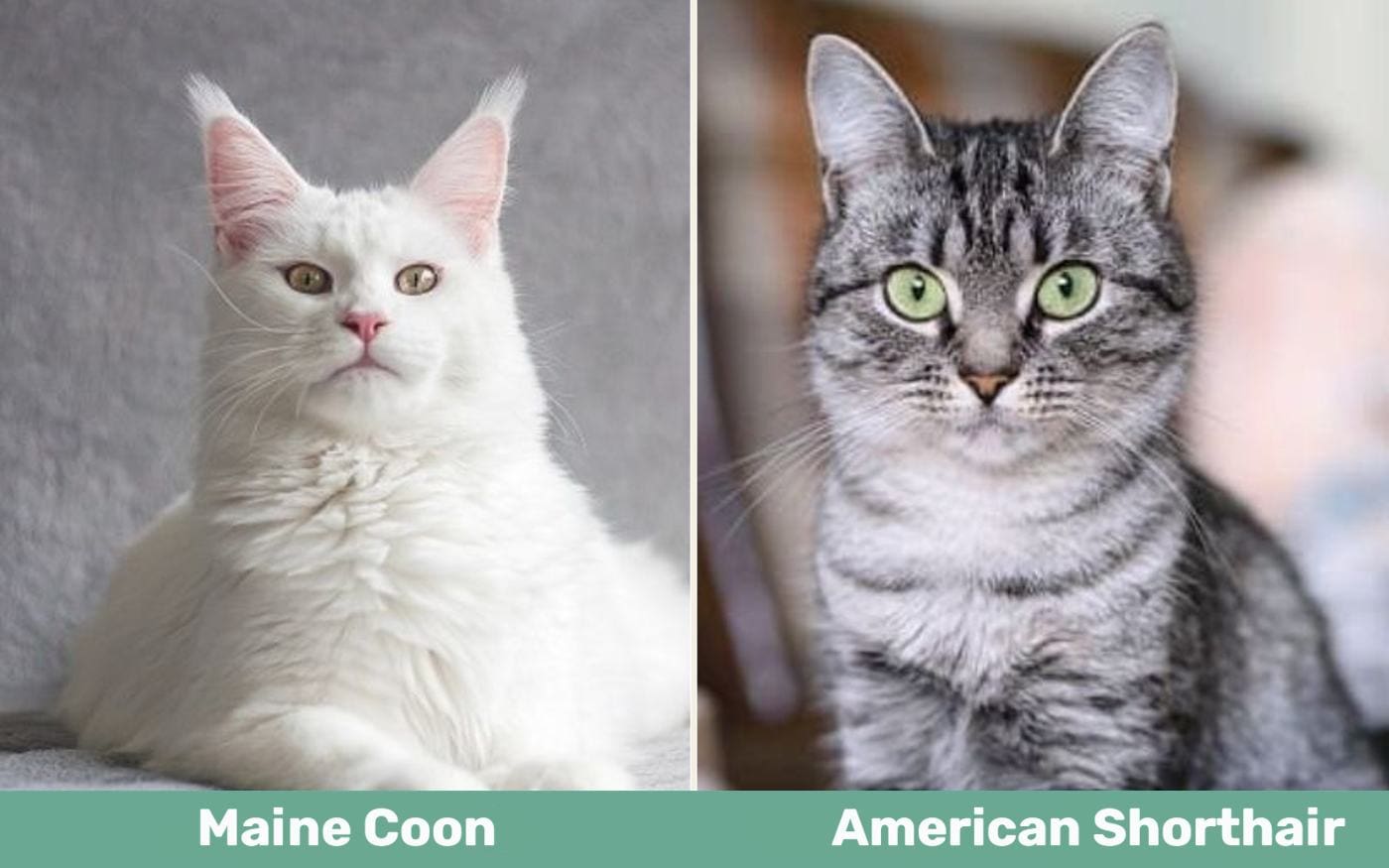
At a Glance
- Average height (adult): 8–16 inches
- Average weight (adult): 8–25 pounds
- Lifespan: 12–15 years
- Exercise: 1+ hours a day
- Grooming needs: Moderate to high
- Family-friendly: Yes
- Other pet-friendly: Yes
- Trainability: Intelligent, dog-like, curious
- Average height (adult): 8–10 inches
- Average weight (adult): 6–15 pounds
- Lifespan: 15–20 years
- Exercise: 1+ hours a day
- Grooming needs: Low
- Family-friendly: Yes
- Other pet-friendly: Yes
- Trainability: Intelligent, sociable, fast learners

Maine Coon Overview
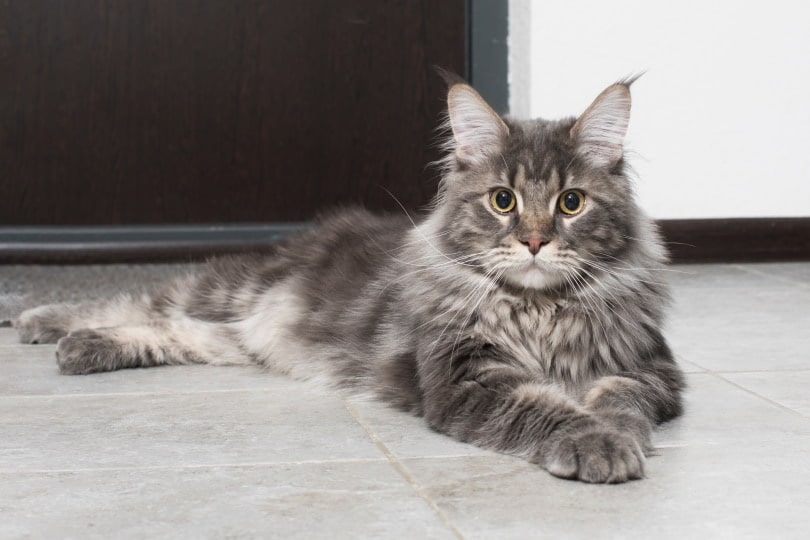
The Maine Coon is a beloved cat breed that is well known for their large size and friendly personality. This is a long-haired breed that has proven a perennial favorite among cat enthusiasts for their long list of positive attributes.
Personality / Character
Often described as “dog like,” the Maine Coon is an intelligent, curious cat that loves spending time with their people. They tend to be gentle and good-natured cats that can be great for homes with children and other pets. They retain a kitten-like charm even as adults, making them playful and entertaining throughout their lives. These cats don’t reach full maturity until they are around 4–5 years of age.
Training
Due to their intelligence and curious nature, Maine Coons can be very trainable cats. They can perform tasks and tricks, as well as walk on a leash and harness. They are intelligent enough to understand boundaries and rules within the home, though their curiosity may push them to break the rules on occasion. Consistency is key when training your Maine Coon.
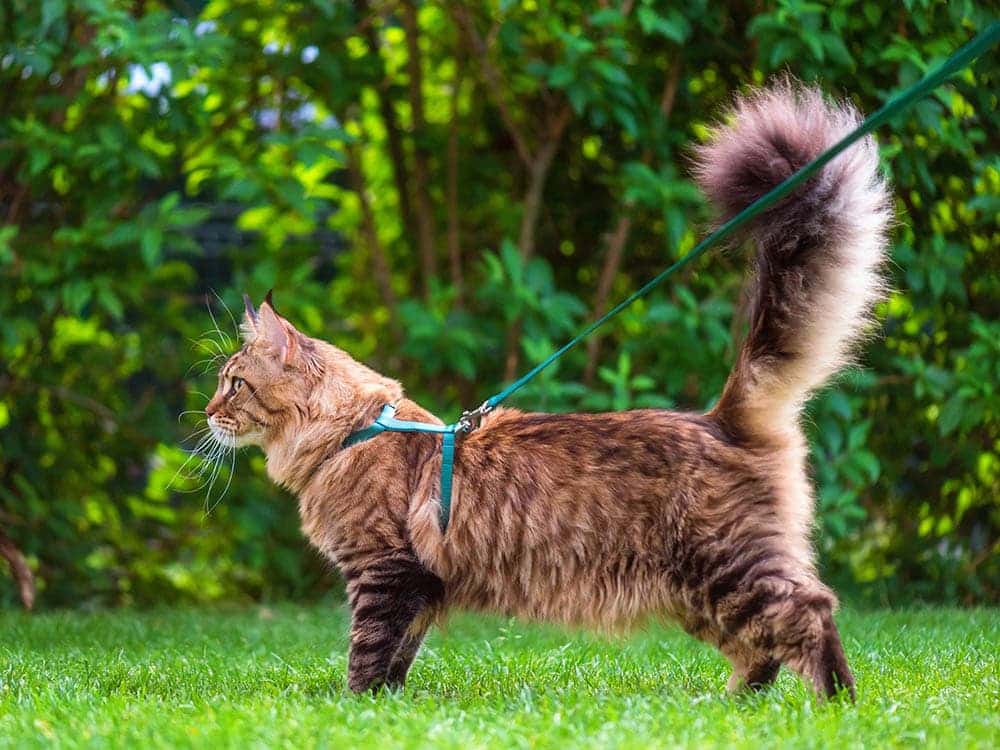
Health & Care
This is an overall hardy breed, but they are prone to a few hereditary health problems. Responsible breeders will test for many types of diseases that Maine Coons are prone to, which helps reduce the risk of these disorders continuing to occur in the breed. Hereditary diseases that Maine Coons are prone to include hip dysplasia, hypertrophic cardiomyopathy (HCM), and spinal muscular atrophy.
Grooming
Due to their long, thick coat, Maine Coons require regular brushing and may require a groomer visit from time to time. They do need to be brushed at least three times per week to remove loose hairs and keep the skin and coat healthy and moisturized. Mat breaker combs can be used if needed, but if your Maine Coon becomes significantly matted, then you may need a professional groomer to help you out.
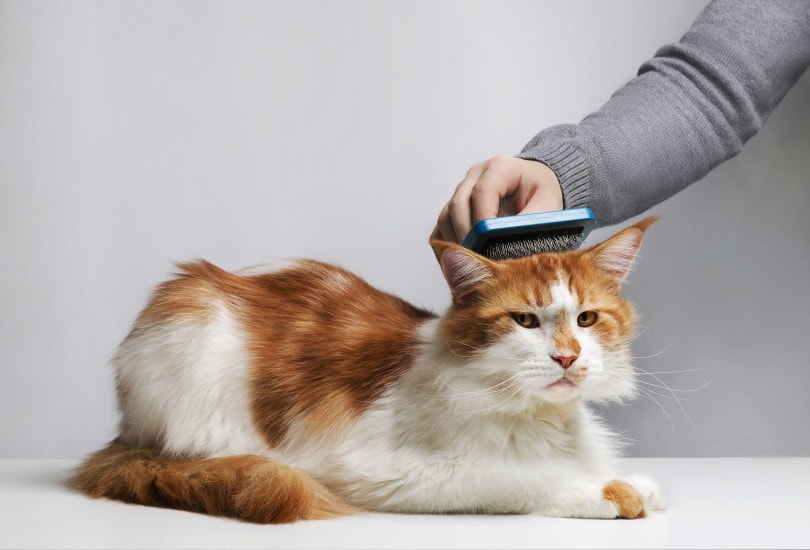
Suitable For:
Maine Coon cats are excellent family cats, even for homes with small children. Children should be taught to be gentle with these cats, though they are quite large and well-built. They are also a good option for homes with other pets, since they typically get along well with other cats and dogs, though they may expect a playmate out of the other pets in the home.

American Shorthair Cat Overview
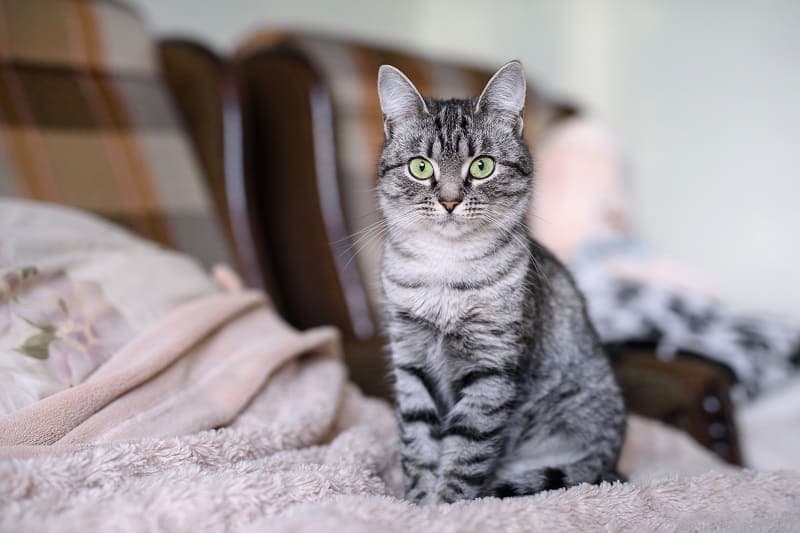
The American Shorthair is a sturdy, medium-sized cat that is prized for their high trainability and sociability. They are great cats for families and singles alike, as well as homes with other pets. They have a lifespan that easily puts the American Shorthair in the running as one of the longest-lived cat breeds.
Personality / Character
The American Shorthair is an overall laidback cat breed, but they originated as working cats, so they do still have moderate exercise needs every day. A bored American Shorthair may be prone to getting into trouble, so make sure to keep your cat entertained with games, puzzles, and daily exercise and affection. These cats are highly intelligent, and their mellow personality makes them suitable for just about any type of home.
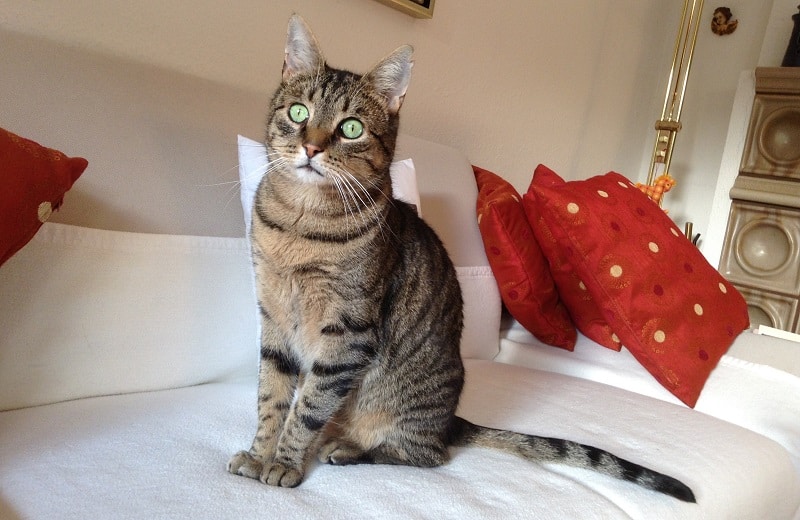
Training
This is an intelligent breed that is known to be very trainable. They can be trained to perform tasks and jobs, as well as participate in cat sports, like feline agility. They can also be taught to perform tricks, walk on a leash and harness, and obey the rules within the home. If kept exercised and entertained, they are likely to follow the rules within the home.
Health & Care
Although a generally healthy breed, the American Shorthair is prone to some medical issues. Thankfully, responsible breeders are working to breed these issues out of the breed, but they do still occur. Like the Maine Coon, American Shorthairs are prone to hip dysplasia and HCM. They may also be prone to urinary diseases and kidney failure.
Grooming
The American Shorthair has low grooming needs, making them a great cat breed for someone who forgets routine cat grooming. Ideally, these cats should be brushed weekly to maintain the health of the coat and skin and keep everything moisturized. Loose hair and skin cells can build up on the coat if not routinely brushed. This breed is unlikely to need professional grooming services.
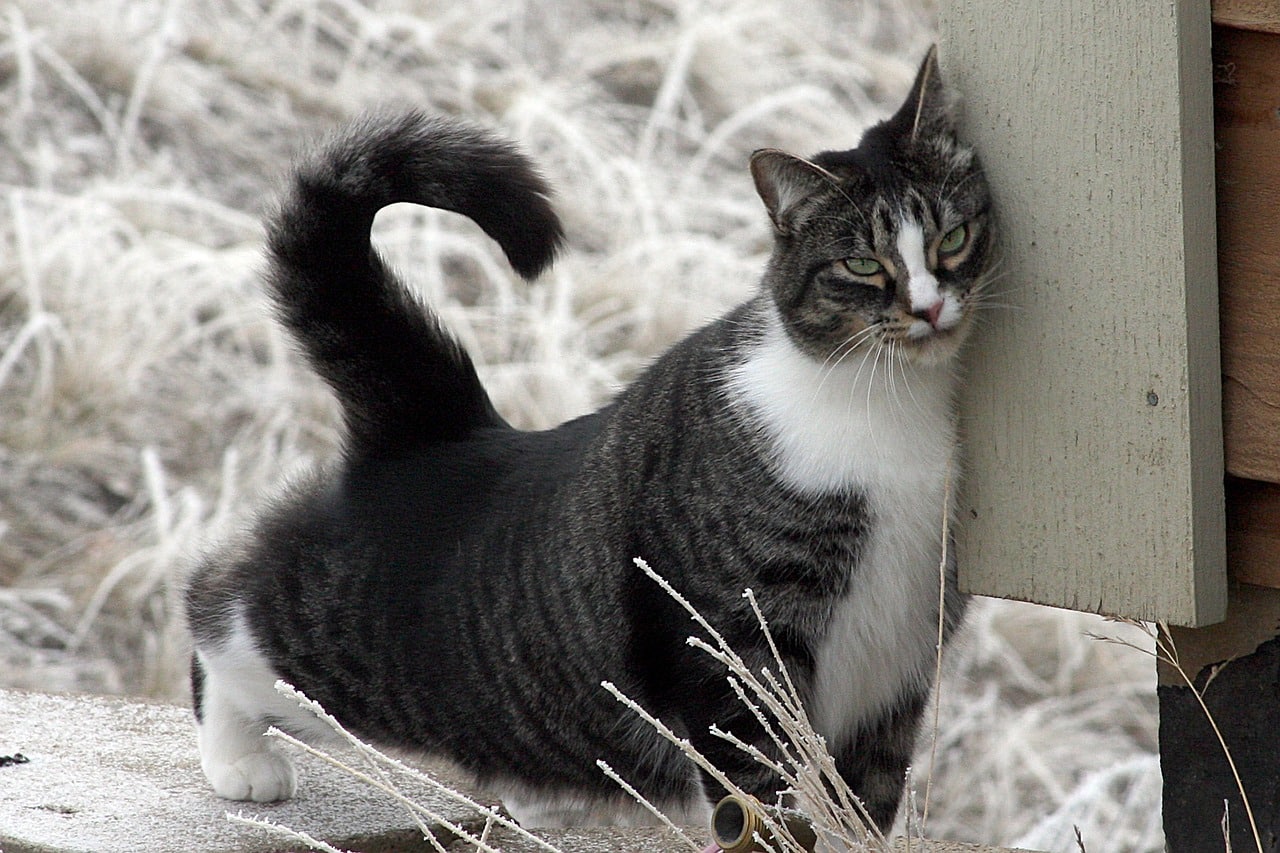
Suitable For:
This cat breed is a great option for families with children, but the children should be educated on giving the cat their space when desired and respecting their boundaries. They are also suitable for homes with singles, including seniors who are home regularly. They can be great companions to other pets in a home with proper introductions.
Which Breed Is Right for You?
The Maine Coon and American Shorthair are two very distinct breeds that have different personalities, but both are highly trainable cats that are suitable for homes with children and other pets. The Maine Coon does have higher grooming needs than the American Shorthair and may be more prone to breaking rules due to their kitten-like temperament throughout their life.
Both of these breeds require daily activity, but the American Shorthair may require a little more exercise and play than the Maine Coon, though this can vary significantly between cats. Both cats can be trained to perform tricks and tasks, as well as to walk on a leash and harness.
See also:
- Maine Coon American Shorthair Mix: Care Guide, Temperament & Traits
- Toyger vs. Bengal: Main Differences (With Pictures)
Featured Image Credit: Olga Korvinuss, Shutterstock /CC0 Public Domain, pxhere

